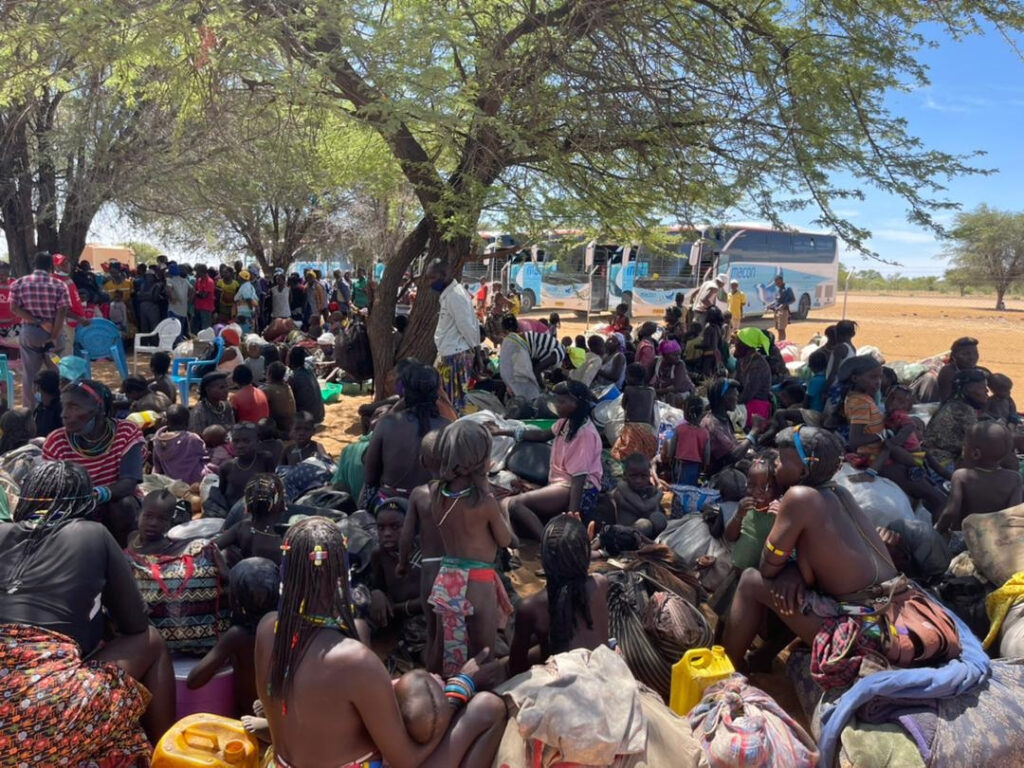
By: Kelvin Chiringa
The Omusati regional governor Erginus Endjala has said that the repatriation of hundreds of Angolan nationals who had fled hunger from their country and got harbored by Namibia was a welcome relief.
The Angolans have been at Etunda for 11 months and they retraced their footprints back to their Angola with the help of their government.
By March last year, Endjala reported that more than 7 000 illegal Angolan immigrants were camping at various sites in the region due to food insecurity in their country.
The governor could however not comment on why it took so long for the Angolan government to come to the rescue of their stranded nationals.
“First and foremost, the immigrants that are here in Etunda are Angolan citizens. Therefore, when their government decided to repatriate them back home, to us it’s a relief because we were only providing humanitarian assistance because of humanity.
“It is not to say that they entirely became our responsibility. We welcome the idea of repatriating their citizens so that at least they can be taken care of by their own government in Angola. They are their citizens by the way,” he said.
The influx of immigrants was also exerting pressure on the Namibian government which had to be assisted by the private sector in extending humanitarian aid to the many families.
This was highlighted by home affairs and immigration minister Albert Kawana.
“The situation is not ideal, either for the regional government, traditional authorities or local communities, but we are working to see how to address the situation. This is giving extra pressure to mostly the health system and other public facilities.
“The Angolans are not crossing into Namibia as a result of instability or persecution, these are economic migrants leaving Angola due to drought. They are crossing into Namibia for survival,” Kawana is reported as saying.
In September last year, the World Food Programme (WFP) reported that more than 1.3 million people in the three south-western provinces of Cunene, Huila and Namibe were facing severe hunger as the worst drought in 40 years left fields barren, pasture lands dry and food reserves depleted.
WFP got its data from a then recent Integrated Phase Classification (IPC) analysis that categorises food insecurity.
“Migration of families to other provinces and neighbouring Namibia in search of water and grazing for cattle has been registered in the South of the country. These areas have been suffering from the devastating effects of climate change and the current drought puts the food security and nutrition of vulnerable people under threat,”, said WFP’s Head of Office in Angola, Michele Mussoni.
But the Omusati governor has said that the migration was caused by the effects of climate change, saying that this was an indication that nations have to rally behind the banner of saving the climate from warming.
“We have provided the little that we have just to make sure that we sustain them during that period and I know for sure that they will really remember and appreciate the effort of government and the people of Namibia for that effort. The condition now as they leave Namibia and the condition when they came into Namibia is completely different,” he said.









Comments